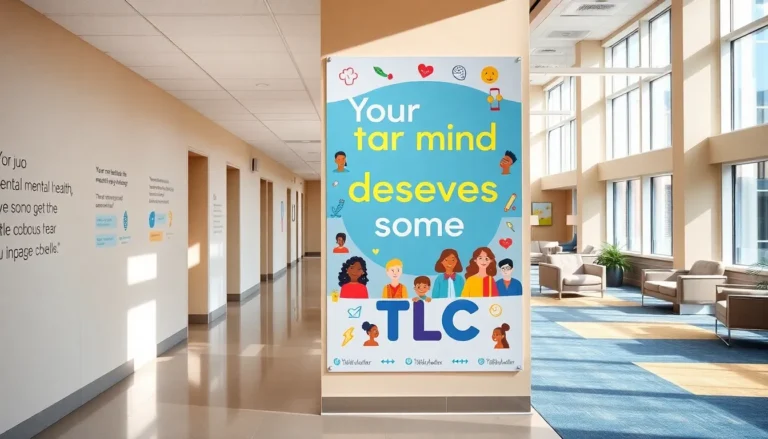Table of Contents
ToggleAs technology evolves at lightning speed, future lifestyles are set to transform in ways that once seemed like science fiction. Imagine a world where smart homes seamlessly integrate with daily routines, and virtual reality offers immersive experiences that redefine entertainment and work. This shift isn’t just about gadgets; it’s about how people will interact with their environment and each other.
Sustainability will play a crucial role in shaping these new lifestyles. With an increasing focus on eco-friendly practices, individuals will prioritize green living, from energy-efficient homes to plant-based diets. As communities adapt to these changes, the future promises a blend of innovation and mindfulness, creating a more connected and conscious society.
Overview of Future Lifestyles
Future lifestyles will reveal a significant transformation shaped by advanced technology and a commitment to sustainability. Smart homes will integrate AI-driven systems, enhancing convenience and efficiency in daily routines. Voice-activated assistants will manage household tasks, optimizing energy consumption and promoting a seamless living environment.
Virtual reality will redefine social interactions and entertainment experiences. Individuals will engage in immersive virtual environments, participating in social gatherings and events from the comfort of their homes. This technology will extend to education, revolutionizing learning by providing hands-on experiences in various fields.
Sustainability will become a cornerstone of future lifestyles. Individuals will prioritize eco-friendly practices, embracing energy-efficient living through sources like solar power. Plant-based diets will gain traction, contributing to better health and a lower carbon footprint. Community initiatives will foster local engagement, promoting resource-sharing and co-living arrangements that emphasize minimal waste.
Connected devices will facilitate a more integrated lifestyle, allowing individuals to manage all aspects of their lives through a centralized platform. Health and wellness will thrive with wearables monitoring fitness metrics and providing real-time feedback. As technology advances, individuals will develop a heightened awareness of their impact on the environment and society, cultivating a culture of mindfulness and responsibility.
Technological Impact on Future Lifestyles

The integration of technology into daily life significantly reshapes how individuals interact with their environments. As innovations continue to emerge, these advancements enhance convenience, efficiency, and overall living experiences.
Smart Homes and Living Spaces
Smart homes revolutionize living spaces by incorporating interconnected devices that improve functionality and comfort. Smart thermostats, lighting systems, and security cameras allow users to control their environments remotely. For instance, integrated AI can learn occupants’ preferences, optimizing energy use and ensuring security. Voice-activated assistants facilitate multi-tasking and streamline household management. These advances not only increase convenience but also foster energy efficiency, supporting sustainable living practices. Furthermore, smart appliances help reduce waste by monitoring inventory and suggesting meals based on available ingredients, promoting mindful consumption.
Wearable Technology and Health
Wearable technology plays a transformative role in personal health management. Devices such as smartwatches and fitness trackers continuously monitor vital signs, activity levels, and sleep patterns. For example, heart rate monitors alert users to potential health issues, while step counters motivate physical activity. These innovations enable users to track their wellness goals in real-time, facilitating informed decisions about lifestyle changes. Additionally, wearables can sync with health applications, providing insights and personalized recommendations. This convergence of technology and health empowers individuals to proactively manage their well-being, leading to healthier, more active lifestyles.
Environmental Considerations
Future lifestyles prioritize environmental sustainability, focusing on practices that reduce ecological footprints. As technology advances, individuals increasingly embrace methods that enhance living conditions while preserving natural resources.
Sustainable Living Practices
Sustainable living practices promote reduced resource consumption and environmental protection. Individuals adopt energy-efficient appliances to lower energy usage, utilizing devices like Energy Star refrigerators and LED lighting. These choices significantly reduce greenhouse gas emissions.
People increasingly choose plant-based diets, which minimize land use and carbon emissions associated with meat production. According to studies, shifting to a plant-based diet can reduce an individual’s carbon footprint by up to 50%.
Community involvement fosters initiatives that support recycling, composting, and urban gardening, promoting shared resources. Innovations like urban farms and community-supported agriculture programs strengthen local food systems while enhancing food security.
Urbanization and Green Spaces
Urbanization impacts future lifestyles, as cities expand and populations grow. Integrating green spaces within urban environments becomes essential. Parks, green roofs, and community gardens improve air quality, reduce heat, and enhance overall well-being.
Research shows that access to green spaces boosts mental health, providing residents with necessary areas for recreation and relaxation. Innovative city designs incorporate nature to create sustainable habitats, enhancing biodiversity and reducing urban heat island effects.
Additionally, urban planners focus on sustainable transportation, promoting walkable neighborhoods and efficient public transit. These strategies lower carbon emissions while promoting healthier lifestyles.
Social Dynamics and Future Lifestyles
Social dynamics in future lifestyles will undergo significant transformations, driven by technology and evolving human interactions. As societies adapt to new norms, the emphasis on connectivity and collaboration becomes paramount.
Remote Work and Digital Nomadism
Remote work and digital nomadism redefine traditional employment structures. Individuals can work from any location, fostering flexibility and autonomy in their professional lives. Statistics show that around 30% of the US workforce is now remote, enabling diverse lifestyles across urban and rural settings. Companies increasingly adopt hybrid models, where employees split time between home and office. This shift also promotes diverse work environments, leading to increased job satisfaction and productivity.
Digital nomadism fosters a blend of work and travel, empowering individuals to experience different cultures and locales. Globally, the number of digital nomads exceeded 35 million in 2022, as many seek work-life balance and enriched experiences. Co-working spaces and technology support connectedness, allowing seamless collaboration regardless of physical location. Future workplaces will likely prioritize personal development and mental well-being, balancing productivity with a more humane approach.
Community and Virtual Connections
Community and virtual connections evolve as technology bridges gaps in human interaction. Social platforms and applications facilitate networking and relationship-building across distances. About 75% of individuals report feeling more connected through online communities, even when face-to-face interactions are limited.
Local community initiatives also thrive, emphasizing resource-sharing and collaboration. Virtual platforms enable community members to participate in local events, volunteer opportunities, and neighborhood projects, reinforcing social ties. As people engage online, a shift towards meaningful interactions occurs, with a focus on quality over quantity.
Virtual reality experiences enhance community engagement, allowing people to participate in immersive events from anywhere. From concerts to workshops, these experiences create a sense of belonging, regardless of geographical constraints. This transformation defines future lifestyles, where communities become increasingly interconnected through technology, fostering social support and collective well-being.
Cultural Shifts in Future Lifestyles
Cultural shifts will play a crucial role in shaping future lifestyles, fostering diverse, inclusive societies and altering consumption habits across the globe.
Diverse and Inclusive Societies
Diverse and inclusive societies will redefine social interactions and community structures. Emerging cultural norms will embrace various identities and backgrounds, promoting equality and representation in all aspects of life. Education systems will integrate multicultural curricula, encouraging understanding and respect for different cultures. Workplaces will adopt inclusive policies, with companies prioritizing diversity in recruitment and leadership roles.
Social platforms will enhance connections among underrepresented groups, providing safe spaces for dialogue and collaboration. Community initiatives will focus on inclusivity, ensuring access to resources and opportunities regardless of socioeconomic status. As individuals engage in cultural exchange, they will foster mutual respect and shared experiences, enriching societal perspectives and enhancing social cohesion.
Changes in Consumption Habits
Changes in consumption habits will emerge due to increased awareness of environmental impact and ethical considerations. Individuals will prioritize sustainable products, opting for brands that commit to eco-friendly practices. The shift towards minimalism will resonate, with many choosing quality over quantity.
Digital platforms will further facilitate responsible consumer choices, allowing easy access to information about product sourcing and lifecycle. Subscription services will offer curated selections of sustainable goods, promoting mindful consumption. Local markets will gain popularity as communities focus on supporting regional economies and reducing carbon footprints through shorter supply chains.
Overall, these changes will create a more conscious society, where individual choices align with communal values, driving a collective movement toward sustainability and inclusivity.
Future lifestyles are set to be a fascinating blend of technology and sustainability. As smart homes and virtual reality reshape daily experiences, individuals will enjoy enhanced convenience and immersive interactions. The commitment to eco-friendly practices will drive communities toward more sustainable living, emphasizing energy efficiency and mindful consumption.
The rise of remote work and digital nomadism will redefine professional landscapes, allowing for greater flexibility and job satisfaction. As technology continues to bridge social gaps, connections will deepen, fostering a sense of community and support.
With a focus on inclusivity and environmental consciousness, future lifestyles promise a more connected and responsible society. Embracing these changes will not only enhance personal well-being but also contribute to a healthier planet for generations to come.




